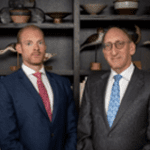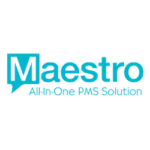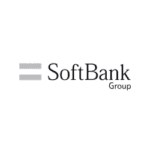 “You cannot save your way to success. You must invest,” is how Andrew Carey, CEO of Newport Hospitality Group (NHG), started our latest interview.
“You cannot save your way to success. You must invest,” is how Andrew Carey, CEO of Newport Hospitality Group (NHG), started our latest interview.
As a management company with a portfolio of select and full-service hotels across the Eastern Seaboard, we focused our discussion on what leading management companies such as NHG are doing to continually produce above-benchmark results for their owners during these turbulent past few years.
Entering any market interruption, be it a pandemic or a recession, most hotels, like businesses in practically any other sector, look to tighten the purse strings and cut costs wherever possible. But as Carey demonstrated, pervasive redlining may not achieve the desired result of maximizing returns.
“It’s all about knowing where to save and where to staunchly preserve your budgets,” continued Carey. “You don’t want to dilute services viewed as meaningful to guests or else word of mouth will suffer, nor do you want to accrue a huge maintenance backlog that might result in a bunch of OOS rooms which dampen occupancy maximization once conditions improve. But perhaps the real magic behind our success was keeping our well-oiled sales teams in place so that they were ready to go full bore at working their local markets as restrictions were lifted and traveler confidence returned.”
The term that we kept coming back to during our discussion was ‘operational maximization’, wherein the savviest hotel operators know what combination of costs will deliver the greatest bang for the buck.
The word ‘combination’ is essential here. For performance optimization, we cannot treat each operation as siloed, mutually exclusive entities. Instead, we must grasp their interdependency and how they all compound in myriad ways to produce the cumulative effect that guests perceive as great service.
That’s why aiming to always be cheaper may backfire; cutting ubiquitously can create weak links in the value chain. Regardless of brand or flag, being known for great service pays back manifold through word of mouth, repeat visits, better ability to grow ADR and becoming the top property in a given category for a given territory which then has a positive feedback effect.
Five Elements That Increase Revenues
With the trend towards market consolidation and larger management companies, NHG stands in contrast with only 55 properties under management – almost all of them flagged. The company’s size has led to a ‘higher touch’ approach in terms of:
- Deployment of bespoke operating strategies
- Empowerment of local leadership
- Service-based training attuned to each market
- Creating a healthy associate-centric culture to mitigate employee turnover
- Consistent regional sales efforts where local relationships are sustained
Importantly, these five elements do not wholly align with a vision of consummate cost cutting where operators end up shirking in one of these five areas to inevitably compromise RevPAR growth. And speaking of which, from the summer of 2020 onwards – representing the initial reopening from the pandemic – NHG has delivered above-market RevPAR growth, or an index over 100, for 77% of its properties with a companywide compounding annual growth rate of 63% from 2020 to 2021.
This performance figure is what Carey cited as evidence for why not cutting costs and keeping teams intact will result in less revenue lost during tough times and the ability to bounce back faster. In other words, and despite what may be standard practice for other brands or industries, “More often than not, the best hotel operations aren’t necessarily the cheapest.”
Operational Maximization Reflected Through One Department
To expand further on one other aspect of operating efficiency that Carey mentioned, consider the maintenance backlog leftover from 2020 as many hotels redlined the engineering department to save as much as possible. While some properties closed, others stayed open only to witness a stark change in guest profile whereby guestrooms suffered a lot more abuse resulting in additional maintenance.
Now, to bring a hotel back online in 2022 and deal with any other pandemic-born damages requires a set procedure of systems checks, fire safety, equipment work, parts replacement and so on. Not only does this take time, resulting in a number of OOS rooms that can curtail topline revenues, but it also creates a subsequent bottleneck for getting underway on new projects.
This domino effect may be hard to see when you are caught in the daily clamor of first closing a hotel due to COVID-19 then partially reopening in the wake of the Delta then Omicron variants as well as reskilling associates amidst an agonizing labor shortage. An example of this that we workshopped with Carey was a scenario where a hotel needs to upgrade its hot water system, which can involve the replacement of a dozen or so boilers at a time.
If only it were as simple as evaluating the costs and scheduling the work. First you have to bring your maintenance team back and refamiliarize them with the property, sourcing and training new team members if need be. Then you have to address any higher-priority concerns left over from the pandemic that may affect guest safety or render a room unsellable.
Only now, and if your team has time, can they properly assess the situation, get budgetary approval and put in an order for parts. And even then, due to both global supply chain disruptions and inflation, this order will likely come with greater costs and extra weeks waiting for the new systems to arrive. Altogether, if you wanted the upgraded hot water system online in time for this current summer peak season of 2022, the time to start project execution was in the autumn of 2021.
This same whiplash effect on operational maximization could also be said regarding associate turnover. NHG is an example of a company priding itself on its corporate culture, but this takes decades to build.
During the pandemic, all the furloughs within the hotel industry led many qualified employees and managers to leave in search of better prospects in other areas of the service sector, and they have yet to return. Accelerating its focus on above-market wages, health insurance and benefit packages even in the face of short-term occupancy flatlining, NHG’s culture and available pool of skilled associates suffered less, again allowing their properties to build back faster as the pandemic waned.
A Small City Example
In early 2021, NHG bought and ramped up a Home2 Suites by Hilton property in Brunswick, Georgia – a midscale, all-suites brand that specializes in cost-conscious extended stay concepts with flexible guestroom configurations. As you can imagine, Home2 has become a hot commodity in many markets since COVID-19 elevated the need for more total supply in this category.
The numbers from this takeover speak for themselves: even in a turbulent travel year, the Home2 Brunswick still achieved an annual RevPAR in 2021 of almost $83 (18.7% above market based on STAR Report data) with the Q1 2022 numbers already showing even more growth with RevPAR at $105.
Just as Q1 2022’s tremendous RevPAR growth represents a managed hotel that is now ‘firing on all cylinders’, the budgeted 2022 rooms revenue is likewise projected to grow by 40% year over year, with ADR increasing by over 18% year over year. For reference, STAR Report data lists the Home2 Brunswick property at 113.2 on a 100-point index for its 2021 ADR comp set comparison – that is, above market by 13.2% – which is up from the 2020 ADR comp set comparison score of 88.4.
“It’s these sorts of growth scenarios that can generate a bit of disbelief, especially when an owner who has thus far self-managed a property reviews our projections,” added Carey to conclude our chat. “These results represent the cumulative effect of our hands-on management style where spending more in certain areas disproportionally increases guest scores and revenues, protecting the bottom line. The real secret is knowing where to focus your spend, and despite all the business intelligence software there’s still an art to knowing where. Of course, that art comes from experienced leadership at both the local and corporate levels.”
So, whatever the macroeconomic situation portends, NHG’s case stands as proof that the immediate reaction of cutting costs may not be the optimal move due to the loss of momentum and the cumulative effects on guest service. In other words, preserve your people; they are and will always be the lifeblood of hospitality.




















